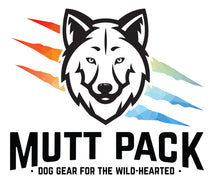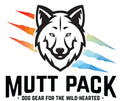Holiday Dos and Don’ts: Tips for Keeping Your Pets Safe for the Holidays

By Marissa Troy
As the festive season approaches, with Thanksgiving on the horizon and Christmas not far behind, it is important to remember that our four-legged friends experience the holiday hustle a little differently than we do. From social anxiety to potential poison risks, it is important to take basic measures to keep our pets safe.
Social Challenges
While us two-leggeds enjoy the company of family and friends, the higher level of foot traffic, new sounds, and new activity can be stressful for cats and dogs who are used to a more relaxed environment. It may be impossible to mitigate all of the stress your pets may face, but there are a few steps that can be taken to reduce stress and anxiety.
- Talk to your guests. Clear communication with your guests is key in maintaining a safe environment for your pets. Make sure they understand up front how your animals handle social interaction and how best they can help make your animals feel comfortable. Remember, you are their advocate, and it is up to you to make sure the humans in the house understand.
- Create a “safe zone.” If you have a particularly anxious pet, it can be beneficial to remove them from the activity by placing them in a room with a door that can be shut. This room should be restricted from guests. Some dogs may feel safer in a crate while some may do better with free access to the entire room. Make sure your dog has a safe place within the room where they can hide and feel secure (such as a crate with a blanket over the top) and your dog should also have access to food and water. For particularly nervous cats, a similar setup can be used, with the cat having free run of the room and a litter box to prevent accidents. Some animals may benefit from a noise machine, or a radio tuned to a station they are familiar with.
Food Safety
In general, if you’re unsure on whether your pet should be eating human food, it is much better to err on the side of caution and provide a pet-safe treat instead. Quantity is also important- one small nibble of boneless cooked turkey is generally safe, but a feast of turkey for your pet can result in a potentially life-threatening inflammation of the pancreas, known as pancreatitis.
The following list includes some foods that are considered safe in small quantities:
These food items are never considered safe and should not be fed to pets:
- Bread dough. Bread dough contains yeast, the consumption of which can result in life-threatening bloat.
- Cooked bones. Cooked bones can break into pieces when chewed, creating shards of hard bone that can damage a dog’s mouth and digestive tract. Dogs can also choke on these splintered pieces. It is never worth the risk.
- Chocolate. Chocolate contains methylxanthines, which can cause many serious symptoms in pets, including nausea and vomiting, diarrhea, seizures, and even death. Keep the sweets away from your pets.
- Fatty meats. Fatty meats can cause diarrhea or pancreatitis in pets.
- Salty snacks. It is common during the holidays to leave a bowl of chips, pretzels, or other salty snack out for your guests. It is important to keep your animals away from salty foods, as they can trigger sodium poisoning in pets.
- Spices, seasonings, and herbs. Many of the ingredients we use to add extra flavor to our food can be harmful when ingested by our pets. This includes but is not limited to onion, garlic, chives, black pepper, cocoa powder, and nutmeg.
If your pet sneaks a bite of something they shouldn’t, there are poison control centers that are just a phone call away. The ASPCA Animal Poison Control Center is available 24 hours a day, 365 days a year and can be called at: (888) 426-4435.
Please note that a consultation fee may apply.
It is equally important to take note of the closest 24 hour emergency vet clinic in your area should your pet need emergency care during the holiday season.
It is important to consult your veterinarian before providing any new snacks to your pets. A veterinarian should also be consulted for any behaviour concerns regarding your pets. For more information, about keeping your pet safe, please visit these resources:
https://www.aspca.org/pet-care/animal-poison-control/people-foods-avoid-feeding-your-pets
https://www.humanesociety.org/resources/holiday-safety-tips-pets#:~:text=Water%20base%3A%20The%20water%20base,Don't%20leave%20candles%20unattended.


Leave a comment